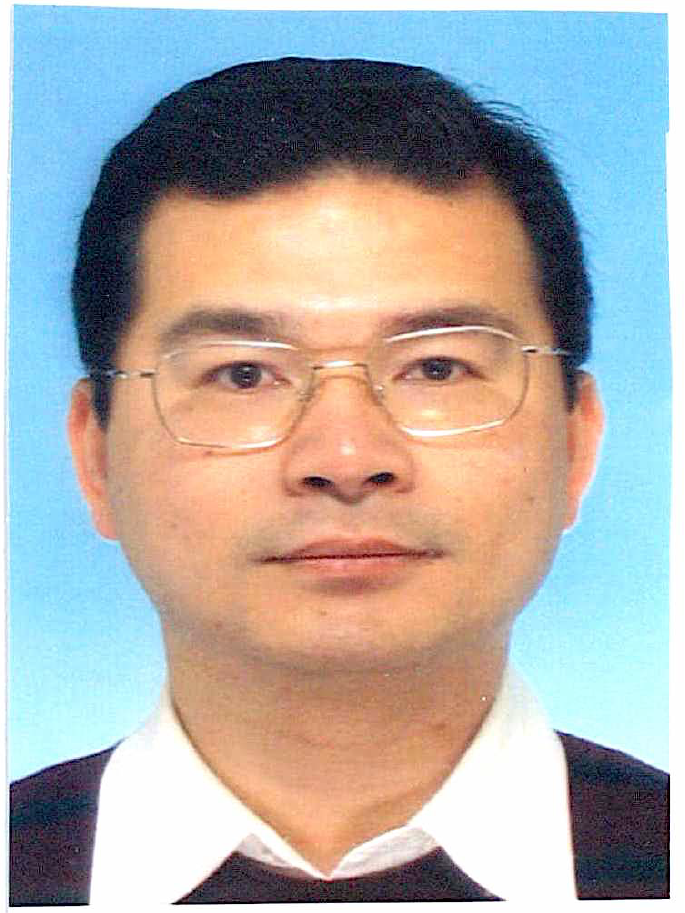Distinguished Lecturers

Dr Rong SU (M11 – SM14) obtained his Bachelor of Engineering degree from University of Science and Technology of China in 1997, and Master of Applied Science degree and PhD degree from University of Toronto in 2000 and 2004, respectively. He was affiliated with University of Waterloo and Technical University of Eindhoven before he joined Nanyang Technological University in 2010. Dr Su's research interests include multi-agent systems, discrete-event system theory, model-based fault diagnosis, cyber security analysis and synthesis, control and optimization of complex networks with applications in flexible manufacturing, intelligent transportation, human-robot interface, power management and green buildings. In the aforementioned areas he has more than 220 journal and conference publications, 1 monograph, and 6 granted/filed patents. Dr Su is a senior member of IEEE, and an associate editor for Automatica (IFAC), Journal of Discrete Event Dynamic Systems: Theory and Applications, and Journal of Control and Decision. He was the Chair of the Technical Committee on Smart Cities in the IEEE Control Systems Society in 2016-2019. Currently, he is a co-chair of Technical Committee on Automation in Logistics in the IEEE Robotics and Automation Society, and chair of the Control Systems Chapter, Singapore.
Title and abstract of possible talks
Talk 1: About Cyber Security in Discrete-Event Dynamic Systems: from Modelling and Analysis of Smart Attacks to Attack-Resilient Supervisory Control
Abstract: It is a long-lasting dream for human beings to have a fully connected society, where a person can talk to anyone, and monitor and control any process located anywhere at any time. With the continuous advancement of ICT, in particular, the recent 5G-based IoT technologies, this dream is finally getting closer to reality. While we are enjoying this unprecedented connectivity around the world, the threat of cyberattacks that may potentially cause significant damages to human lives and properties has more frequently become the center of attention, which has been attracting lots of research from different communities, including the discrete-event system community, where different attack models are conjectured and analyzed, upon which relevant defense techniques have been proposed.
Considering the extremely broad scope of this subject, in this talk I will narrow my focus to a specific area, that is, cyber security of supervisory control systems. Since the supervisory control theory was proposed in 1980’s in the seminar work by Peter Ramadge and Murray Wonham, it has been applied to many applications that have clear event-driven characteristics, e.g., patient support systems, theme-park recreational systems, water locking systems and most notably, manufacturing systems, in particular, those aiming for manufacturing on-demand in Industry 4.0, which require advanced modelling, analysis, synthesis and execution techniques to cope with dynamic changes in a system's operational environment and production requirements. A closed-loop supervisory control system relies on correct and timely data communication between a plant and its supervisor to ensure correct and performance-optimal behaviors, making it a perfect target of cyberattacks. Considering the diversity of cyberattacks on discrete-event systems, I will focus on a special type of attacks called “smart attacks”, which, if exist, will not be detected by the supervisor until an irreversible process towards ensured damages takes place. An attack may be carried out in either the observation channel, or the command channel, or both simultaneously. By introducing some models of observation and command channel attacks, I will first describe, from an attacker’s point of view, how to synthesize a smart attack strategy. Sufficient and necessary conditions will be given to ensure the existence of such a strategy, which turns out to be decidable, if perfect system knowledge is possessed. In case an attack strategy exists, its synthesis is in general NP-hard. On the other hand, even with prior knowledge of the synthesis procedure of a smart attack, an effective synthesis of an attack-resilient supervisor is still a daunting challenge, owing to not only high synthesis complexities, but also the currently unknown decidability nature of existence of such a supervisor in a general setup. I will show that, for a case where an attacker does not aim for assured damages, but rather some possibility of damages, captured by the concept of weak attackability, the existence of an attack-resilient supervisor is decidable, and a specific synthesis algorithm will be given.
Talk 2: Resilient Resource Management in Multi-Process Manufacturing Systems
Abstract: The 4th industrial revolution is making on-demand manufacturing a reality, which can offer many advantages. However, such anticipated advantages demand for advanced modelling, optimization and real-time implementation techniques to handle highly dynamic user requirements and operational environment. In this talk, we address the problem of resilient resource management for a typical multi-process manufacturing system, which consists of several parallel production processes. Each process has its own resources such as machines, AGVs, conveyors and storages, and production orders from customers with relevant pre-computed production schedules. Due to either changes of production orders or component faults, frequently some process may be interrupted. To ensure continuous operations, the current practice typically relies on a large number of standby components, resulting in very low resource utilization. To ensure fast responsiveness to system changes with low costs, we propose a novel resource sharing strategy that real-time analyzes the resource demand in a target process, and resource flexibilities in other processes, and dynamically assign and schedule flexible resources to the target process to minimize the negative impact of resource scarcity in the target process to its assigned production jobs, while ensuring jobs in other processes not being affected. A general mixed integer linear programming (MILP) formulation is adopted to capture resource needs and flexibility, and a real-time responsive coordinator is designed to ensure fast resource matching and task re-scheduling in relevant processes. The developed strategy is applied to a simulated manufacturing system with multiple fault scenarios, and the experimental results show the promising potential of our strategy in improving job completion rate, increasing resource utilization and achieving load balance.
Munich, Germany
The research interests of Prof. Vogel-Heuser (*1961) are in the area of systems and software engineering as well as in the modeling of distributed and reliable embedded systems. Especially, her research foci are put on the challenges that result from the increasing demand to produce customer-specific products in the plant manufacturing domain. Engineering and education on hybrid process and heterogeneous distributed and intelligent systems using a human centered approach are also included in her research area.
Prof. Vogel-Heuser received her Dipl. Ing. degree in electrical engineering in 1987 and her Dr.-Ing. degree in mechanical engineering in 1990 from the RWTH Aachen, Germany. She acquired industrial experience over ten years, including a position as technical director for the Siempelkamp Group. After various professorship positions in Hagen, Wuppertal, and Kassel, she was appointed to the Chair of Automation and Information Systems at TUM in 2009. Prof. Vogel-Heuser is a Senior Member of the IEEE and a member of the National Academy of Science and Engineering (acatech). She is also a member of various advisory boards, including the advisory board of the VDI/VDE-GMA and the board of trustees of the German Museum. Prof. Vogel-Heuser is editor of the handbook Industrie 4.0 and the author of more than 500 scientific publications.
Talk: Enabling flexible self-adaptiv intralogistic systems by modular Control Software and Multi Agent System
Abstract: The increasing demand for flexibility affects intralogistic systems, more precisely automated material flow systems demanding reconfigurable systems as well as reduced engineering effort. The talk introduces both aspects sharing results from different research projects on the reconfigurability during runtime by using a metamodel based approach that provides the knowledge base for autonomous decision by the agents. Also connectivity of different mechatronic intralogistic modules can be achieved by using such a metamodel based approach. Finally obstacles and challenges for modularity on control level is introduced.